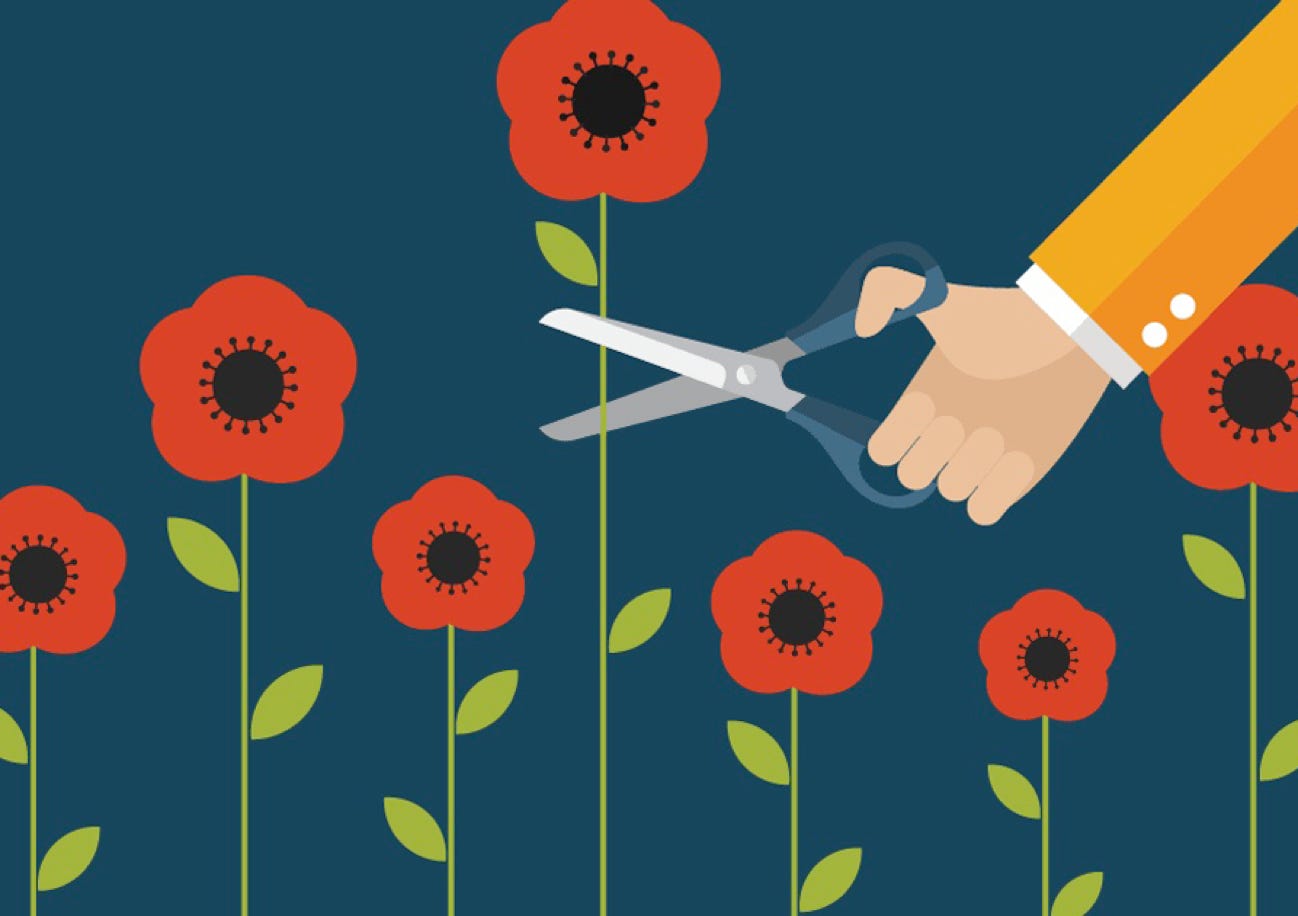
TIME TO CHANGE!

Lorem ipsum dolor sit
UP YOUR DOG SHOW GAME

TIME TO CHANGE!

Lorem ipsum dolor sit
UP YOUR DOG SHOW GAME

Does Your Club Have
“TALL POPPY SYNDROME?”
A distaste for any kind
of success in others.
By Editorial Staff
(Read Time: 1 min 48 sec)
Has tall poppy syndrome taken root in your club? In Australia, “tall poppy syndrome” refers to successful people being criticized. This occurs when their peers believe they are too successful. Intense scrutiny and criticism of such a person is termed as "cutting down the tall poppy.” This description is used of those who deliberately criticize other people for their success and achievements.
In Japan, a similar common expression is "the nail that sticks up gets hammered down.” In the Netherlands, this expression is "don't put your head above ground level.”
Problems arise when members or even leaders feel threatened or are made to look bad by the high achiever’s strong performance. It’s human nature not to want others to outshine us, but the impulse to trim down or hold back those peak performers can be damaging to talent and to the organization.
Crab mentality, is a metaphor about the behavior of crabs when they are trapped in a bucket: while any one crab can easily start to climb out, it will nonetheless be pulled back in by the others, ensuring the group's collective demise.
The analogous theory in human behavior is that members of a group will attempt to reduce the self-confidence of any member who achieves success beyond others, out of envy, jealousy, resentment, spite, or competitive feelings, in order to halt their progress.
At an emotional level, crab mentality can stem from a deep-seated human need for self-esteem and social comparison.
At a time when participation in AKC conformation shows, all-breed clubs, parent clubs, and local specialty clubs are falling, perhaps it’s time to take a step back and take an honest look at the root causes and solutions with fresh eyes.
Over the years, I have learned that the signs of good leadership and a healthy club are those who are able to motivate others to go above and beyond what is expected. To cultivate and inspire members to be outstanding. Good leadership taps into the strengths and talents of those under them in order to benefit the group or organization. Good leadership always acknowledges and applauds the accomplishments of its members and volunteers. Good leadership knows good team building and creative problem-solving skills. All of which cultivate a sense of loyalty.
Often times when someone in our club excels in areas we value, we might feel threatened and act in ways that downplay their achievements. This mechanism can partly explain why individuals may attempt to pull down those who achieve more than themselves, as a way to protect their own self-esteem and social standing.
Has “Tall Poppy Syndrome” taken root in your club?

SHARE US ON FACEBOOK